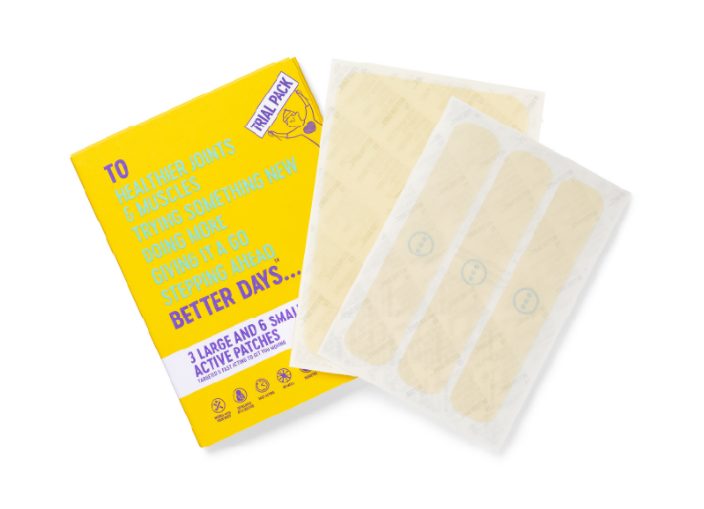
Some call it the “sunshine vitamin” – and medical schools used to teach its uses through the mnemonic bones, groans and moans. Vitamin D is an essential substance for keeping our bones intact (there’s bones), body strong (the groans) and even helping with physical and mental discomfort (and moans). It comes to us naturally from sunlight, but there is a lot more to know about the types and sources of vitamin D.
That’s why, in this article, we hope to shed a little “sunlight” on one of our body’s most essential nutrients and a core part of To Better Days™.
What is vitamin D, exactly?
Vitamin D is a hormone produced by the kidney which supports the immune system and also allows bones to absorb calcium, which is necessary for the proper growth and strength of every single bone in your body, from your toes to your teeth.
You can get it naturally from two different sources: sunlight or food.
Both sources fall under the general term “vitamin D”, but it is actually vitamin D3 that is produced when the skin is exposed to sunlight, while D2 comes from certain foods, such as fish and eggs. As these Harvard University researchers say, vitamin D is the only vitamin that does not come exclusively from diet. That means some doctors even say it is “not strictly a vitamin”!
The really important vitamin D
The United Kingdom is one of the most at-risk countries for people lacking vitamin D. A national survey showed that one in five people in the country has deficient levels of the vitamin. Possible reasons for this trend are the relative lack of sunlight in the UK and an older population.
A body receiving enough vitamin D is one that is less likely to have bone, joint and muscle pain. Eventually, enough vitamin D can help prevent osteoporosis as well as fractures. A 2017 study also showed that in addition, vitamin D is one of the best defences against chronic conditions like heart disease and multiple sclerosis.

How much vitamin D your body needs
There is no consensus on how much Vitamin D we should be taking a day, except that we all need plenty.
Generally, it is recommended we all get 500-700mg of calcium and 800-1,000 iu (international units) of vitamin D per day but in some cases, the recommended Vitamin D intake is much higher.
Guidance on this varies. It actually depends on each persons’ needs (doctors can prescribe 50,000 IU or more as a one-off and then up to 4,000 IU a day in some cases). Some of your daily dose can always be achieved by exposing your body to sunlight, but as we need to be conscious of UV exposure and the sun is not always around, especially for those in Northern Europe, foods and supplements can help.
What to do when you experience symptoms of deficiency
Waiting for the sun to come out every day in the UK may not always be that rewarding. Luckily, plenty of external products are now available as alternative supplies of Vitamin D.
Vitamin D supplements are usually the best choice for starters to reduce the risk of any symptoms of vitamin D deficiency, like low moods, feeling ill or contracting respiratory infections.
Taking a daily Vitamin D dose of up to 4,000 iu can help improve your immune response to viruses and bacteria that cause colds, bronchitis and pneumonia. For example, a study by An Lehouck et al, shows taking a high dose for one year will prevent you from chronic lung disorder COPD.

Vitamin D can also help with back pain, fatigue, severe headaches and even bone disorders like osteoporosis because it is the crucial nutrient to absorb calcium.
If you prefer a natural intake, you can try foods rich in vitamin D. Fatty fish like salmon, herring, sardines and even 100 grams of canned tuna can pack quite a lot of vitamin D. If seafood is not to your liking, you can find Vitamin D in egg yolks, mushrooms and fortified products like cows and soy milk.
If you are looking for some inspiration, read our article on Tips for a Vitamin D-rich diet.

Can To Better Days patches be used for vitamin D deficiency?
Even though the To Better Days patches contain vitamin D, they are not classified as a supplement that can be used for vitamin D deficiency. The patches are suitable for improving the health and soothing discomfort of nerves, muscles and joints. They have received positive feedback from people with conditions such as rheumatoid arthritis, osteoarthritis and osteoporosis, so if you are looking for a targeted option for joints, nerves and muscles why not give our trial pack a go?

There is a lot more to know about Vitamin D, and this is just a little introduction. If you are concerned about your Vitamin D intake, we suggest consulting your medical professional and maybe getting yourself tested. If you are interested in learning more, we also have other articles including this one article that can shed some further light into this essential vitamin.
To Better Days has a range of active patches that help those experiencing sustained discomfort. Our easy to use adhesive patches contain a patented combination of vitamin D and dextrose to offer a topical and targeted option that supports the health of joints, muscles and nerves.
Here’s to being on the move, having more ‘get up and go’ and a feeling of freedom. Here’s To Better Days.



